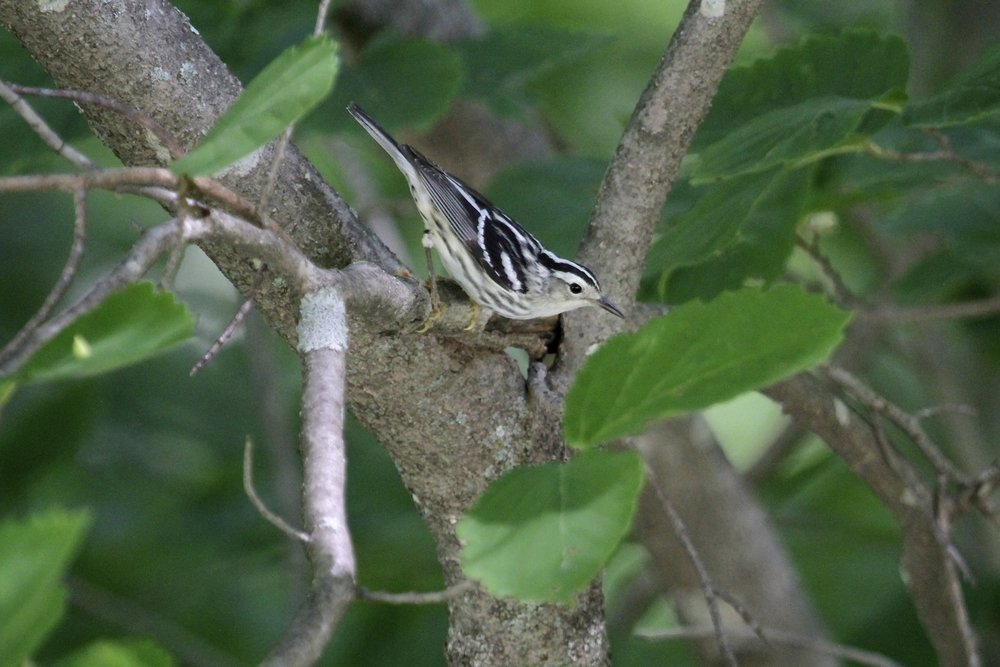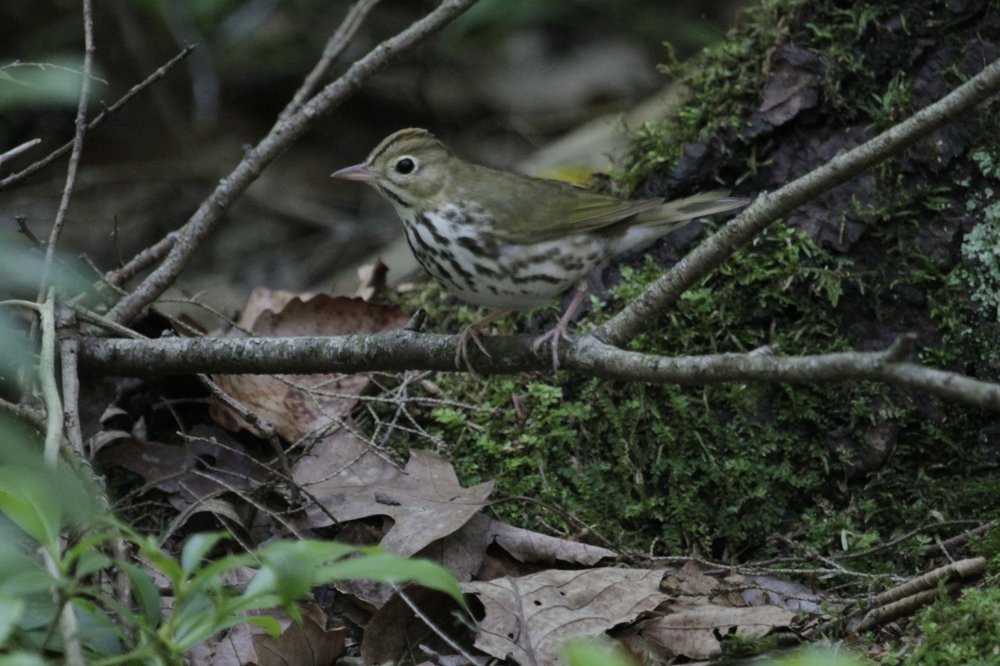Ovenbird: A singer everyone has heard
There is a singer everyone has heard,
Loud, a mid-summer and a mid-wood bird,
Who makes the solid tree trunks sound again
--Robert Frost
Even if you do not know the Ovenbird, you know the distinct, emphatic song of this little warbler: Tea-Cherr, Tea-Cherr, Tea-Cherr. Teacher teacher teacher is the mnemonic, so I think of it as my bird.

There is a singer everyone has heard,
Loud, a mid-summer and a mid-wood bird,
Who makes the solid tree trunks sound again
--Robert Frost
Even if you do not know the Ovenbird, you know the distinct, emphatic song of this little warbler: Tea-Cherr, Tea-Cherr, Tea-Cherr. Teacher teacher teacher is the mnemonic, so I think of it as my bird.

It’s the sound I listen for in spring, one of the early warblers, and in those leaf-less days, I have a chance to see the little bird with its brown speckled breast and white eye ring that makes it look in a perpetual state of alarm. Once the leaves come in, I give up hope of a look, satisfying myself with the un-warbler-like song that echoes, flat-footed through dense forests.
So this morning it came as a complete surprise when on a dirt road in a deep woods an Ovenbird came to greet me. I had been walking the sunlight dappled road, listening to the lazy teeyay, tayo of the Blue-headed Vireo, the gravelly song of the Black-throated Blue Warbler, the zee zee zee zo zee of the Black-throated Green Warbler and the music of the Black and White Warbler, which always makes me think that someone is playing one high note on a very tiny violin. Amidst this morning symphony, the Ovenbird appeared, buoyant and unafraid, not more than ten feet from the road. It was not singing. It was dancing. Its white eye-ring made it look, not startled, but wide-eyed, full of curiosity. Its white throat was outlined in brown, like a long mustache that then ran into a brown streaked breast. The streaks were twigs, the bird blending in to the woods. It hopped from a low tree limb, to a bush, across a moss-covered stump. There it stopped, cocked its tail wren-like, and asked: Do I look like a diminished thing?

Frost ends his poem on this note (full poem below) and as poets are wont to do, he makes this tilt to the end, toward our lives in decline, our lives turned to dust. It is easy to be pessimistic if we read the bird forecasts—diminishment is the story. Populations are down for songbirds in particular. But not, I am happy to say, for the Ovenbird, where over the past years in un-fragmented forests, like the one I was walking through, populations are up.

There was no dust in these woods, only the rich, dark soil of white pines and hardwoods, layers of time and rot blanketed with too-green moss. And it was to the ground that the little bird hopped. There it negotiated the territory between ferns and leaf litter, nearly vanishing in its miniature obstacle course. It then popped out not more than five feet from me—too close for me to get a photograph! —splayed its wire-thin legs, tilted its head to show the dapper mustard-brown racing cap that graces its tiny head, and bounded off.
Was the bird defending its ground-level dome-shaped nest? Perhaps, but if so, it was not making the usual agitated chatter of a bird distressed. And, it was doing a poor job of luring me away. For ten minutes I watched as the bird circled near me, up and down, in and out in a spunky mid-summer greeting.
It is always a disorienting, even mournful, moment right after migration. The rush of birds is over. Birding in New York in June requires a different lens, one that favors the familiar, the every day; I don’t expect any new bird, only hope for a fresh view of a familiar friend. So I pay attention to the sally of the Phoebe, the near-maddening song of the White-eyed Vireo and I focus on every whip, bleep, pink, seep, ple-bleep, whink, whip, sot, sip, and chep that emerges from the woods. In this intimacy of the daily, I come to know the birds better. And now, I know the Ovenbird, not just its song, but in its vibrant, mid-wood, mid-summer dance.
The Ovenbird
There is a singer everyone has heard,
Loud, a mid-summer and a mid-wood bird,
Who makes the solid tree trunks sound again.
He says that leaves are old and that for flowers
Mid-summer is to spring as one to ten.
He says the early petal-fall is past
When pear and cherry bloom went down in showers
On sunny days a moment overcast;
And comes that other fall we name the fall.
He says the highway dust is over all.
The bird would cease and be as other birds
But that he knows in singing not to sing.
The question that he frames in all but words
Is what to make of a diminished thing.
